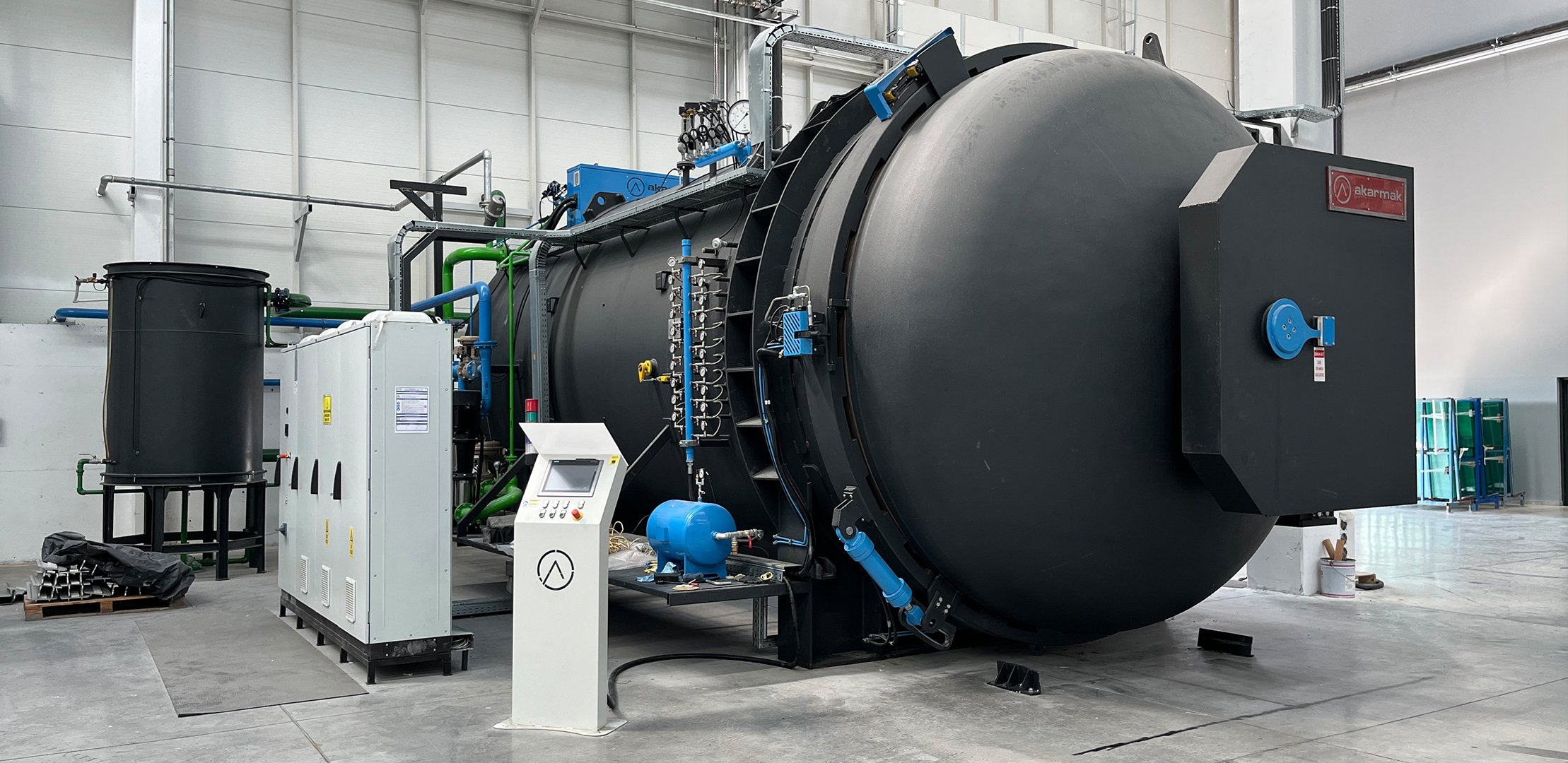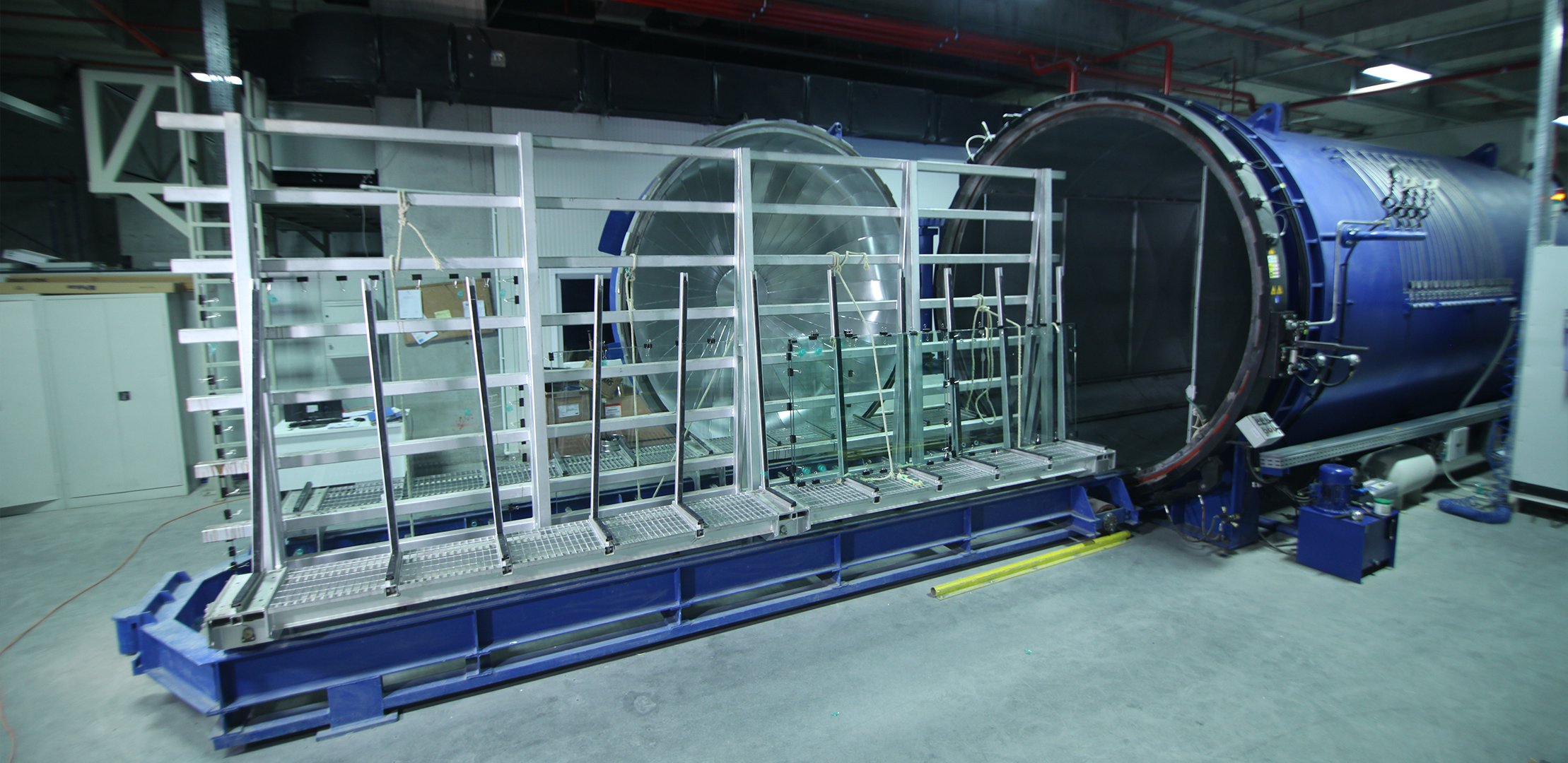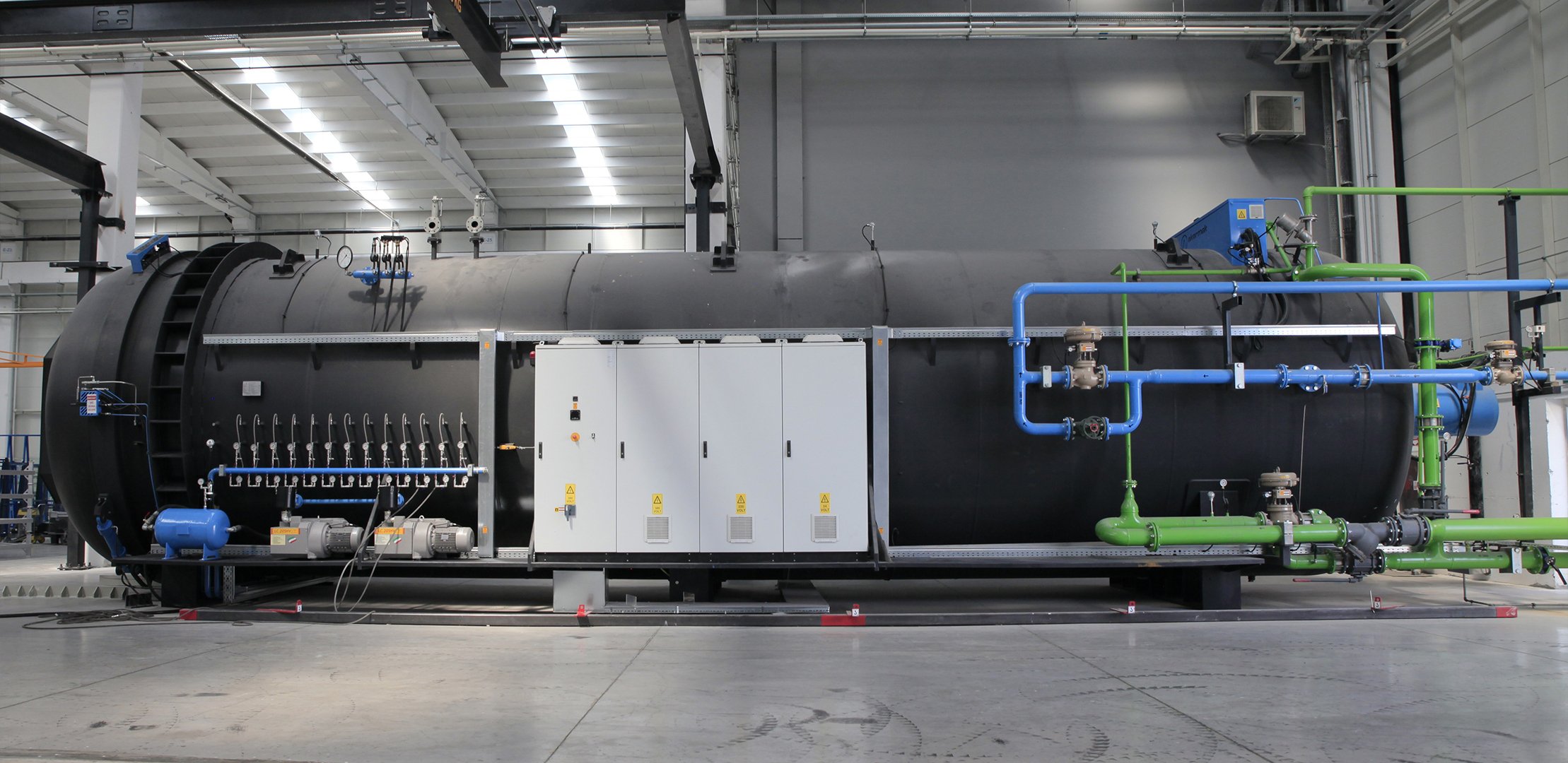Glass Lamination Autoclaves with Heat Soak Test Capability
Glass Lamination Autoclaves with Heat Soak Test Capability
In the glass processing industry, efficiency, safety, and compact production solutions are more important than ever. The quality of glass products used in applications such as high-rise buildings, façade systems, balcony railings, and safety glass is critical for both manufacturers and end users. In this context, offering processes used in the production of both laminated and tempered glass within a single integrated system provides significant advantages to the industry.
At Akarmak, we offer a solution that meets this need:
With our multifunctional system capable of performing both glass lamination and Heat Soak Test (HST) processes in a single autoclave, we help you save space and costs in your production while ensuring consistent high quality.
Thanks to Akarmak’s advanced multifunctional autoclave solution:
- There is no need for two separate machines, reducing investment and maintenance costs
- Floor space is saved within the facility, enabling space optimization
- The workflow is simplified, and production time is shortened
- Energy efficiency is increased, and operating costs are reduced
- Different types of glass can be processed using a single system

To briefly recap the glass lamination process: it involves bonding two or more layers of glass with an interlayer under specific pressure and temperature. These interlayers are typically made of PVB (Polyvinyl Butyral) or specialized materials such as SGP (SentryGlas®), used in high-security applications.
The process, performed at approximately 130 °C and 11 bar pressure, results in glass that offers high impact resistance, sound insulation, and protection against UV rays. These features make laminated glass indispensable in architectural projects, safety applications, and aesthetic designs.
Heat Soak Test Process and Its Contribution to Safety
The Heat Soak Test (HST) is a critical safety procedure aimed at identifying spontaneous breakage in tempered glass caused by nickel sulphide (NiS) inclusions. During this test, glass is held at a specific temperature for a defined period, causing any panes with internal stresses to break before installation. This preemptively eliminates potential risks in the field. Akarmak autoclaves perform this test fully automatically and in compliance with the EN 14179-1 standard.

HST Operating Parameters (for 6000 kg of glass + loading cart):
- Maximum Temperature: 290 °C (±10 °C)
- Operating Pressure: Atmospheric pressure
- Heating Time: 20°C → 290°C, approx. 180 minutes
- Soaking Time: At 290°C, approx. 120 minutes
- Cooling Time: Approx. 150 minutes
- Total Cycle Duration: 7.5 – 8 hours
Compliance with Standards
Akarmak’s multifunctional autoclaves are designed to meet the requirements of EN 14179-1 for the Heat Soak Test process and are manufactured in accordance with EN 13445 standards regarding mechanical safety and pressure vessel criteria. Quality control processes are managed easily and effectively with features such as process monitoring, data logging, traceability, and a multilingual user interface.
At Akarmak, we continue to develop solutions that combine a high degree of safety, operational efficiency, and production flexibility in glass processing technologies. This multifunctional system, which integrates both glass lamination and Heat Soak Test processes into a single piece of equipment, provides our customers with significant advantages both economically and technically.
To learn more and discuss how we can integrate this innovative technology into your production line, please contact us.


